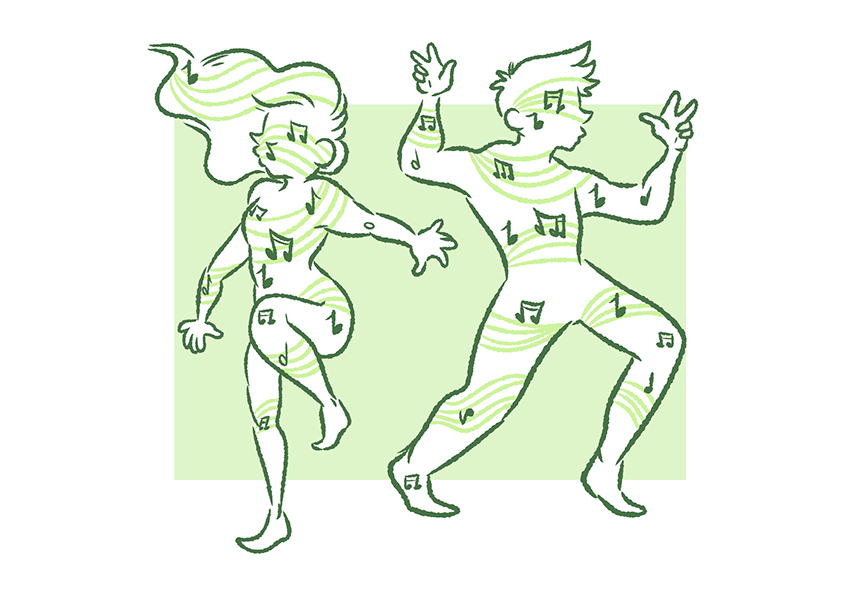If your genetic information had a soundtrack, what would it sound like?
Spotify, a popular music streaming service, and AncestryDNA, a DNA-testing company, have partnered together to answer that question. AncestryDNA users submit a saliva sample to the company, which then provides an algorithmic-based ethnicity estimate in the form of a pie chart. Spotify then allows users to enter that information into its system and curate a playlist containing songs that best reflect the cultures of the user’s ancestors.
A spit sample translating into ancestral information is almost too cool to be true. Jennifer Moon, associate professor of instruction in the Department of Molecular Biosciences, said these DNA kits aren’t actually sequencing a person’s entire genome, but rather a subset.
“There are certain guideposts in the DNA that are associated with certain ancestries, so when you send your DNA to these companies, they’re looking for a subset of DNA sequences that they use to make assumptions about,” Moon said.
These assumptions and correlations can be strong, but there is still a margin of error associated with these tests, Moon added.
“If you have X, Y, Z guideposts, that does not necessarily mean you’re from this part of the world,” Moon said. “There’s a statistical association with these tests, but that margin of error is something to think about when you get your results back.”
An even more important consideration, Moon said, is how meaningful to one’s identity these results are.
“First of all, it’s only meaningful if it’s correct, because it is just statistics,” she said. “It’s not a definite ‘you are now 10 percent Native American or 10 percent African American.’ The other thing to consider is that race is not biologically determined. The genetic variability in a single race is so wide that it overlaps with all the other races.”
Instead, Moon said it is the countless other things impacting our lives, such as our external environment and the culture we surround ourselves in, that influence our identities.
“It’s simply not true that you can reduce someone’s preferences to a sequence of nucleotides,” Moon said. “DNA is so much more than just the sequences. It’s also what gene is expressed … when and where … all of which are influenced by the environment.”
For chemistry junior Sorin Srinivasa, who was a member of the Engineering Chamber Orchestra, music taste is not confined to borders.
“I don’t really see much of a correlation between ancestry and music in my experience. There seems to be a lot more diversity within these common groups than there are similarities,” Srinivasa said. “Music is something everyone can enjoy — it’s a major part of the traditions of every culture, and I think that universality of it makes it really unique as one of the things that transcends boundaries.”
Still, Srinivasa said they would be interested to hear their “DNA playlist” out of curiosity. To date, more than 10,000 people have already signed up to hear their musical playlist since the collaboration launched on Thursday, Sept. 21.
Moon said she remains hesitant to take the DNA test or hear her “genetic soundtrack”.
“My colleagues have done it, and it’s certainly fun and interesting, but I struggle with it because I’m worried that if I see that information, I will change how I think of myself,” Moon said. “I feel like I’m good with not knowing.”















